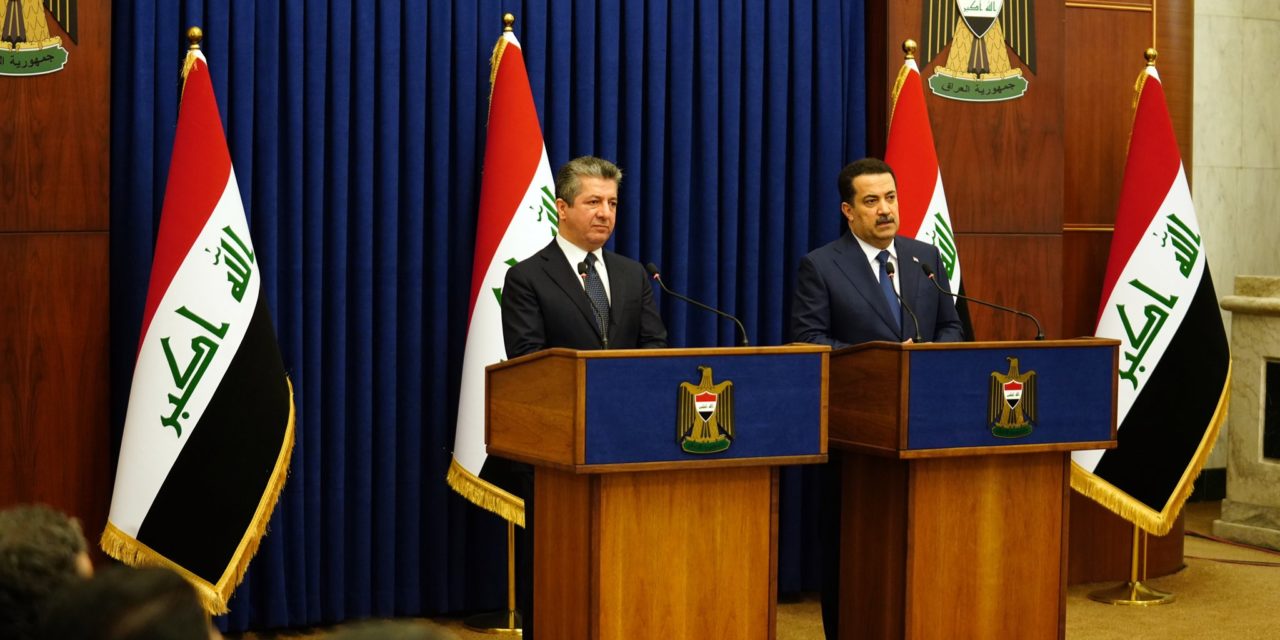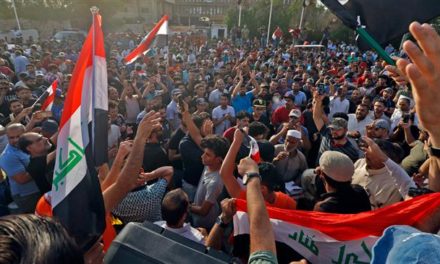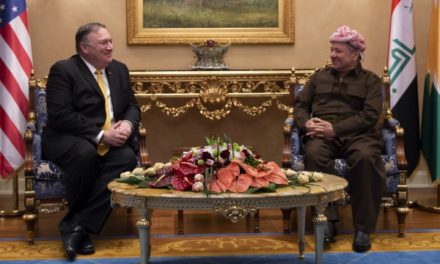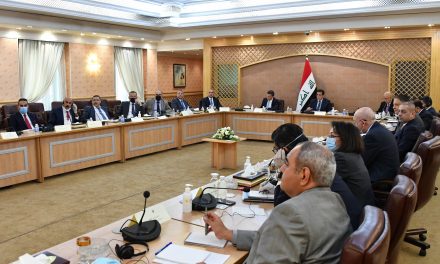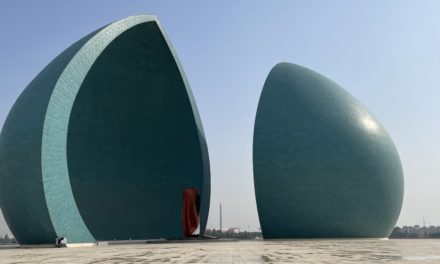Back in 2003, the Kurdistan Regional Government (KRG) adopted an independent oil policy that was based on weak foundations and self-serving foreign advice. 20 years later, that policy now appears to be unravelling. The balance of forces has now firmly tilted in Baghdad’s favour, and a series of court decisions have undone much of the KRG’s position. Most recently, an arbitral decision issued by the International Chamber of Commerce may very well prevent the KRG from exporting any significant quantities of oil without Baghdad’s explicit approval.
Some elements within the KRG appear to understand that they are facing a new reality and are arguing in favour of a shared federal regime, on the condition that a clear mechanism for distributing revenue equitably is also agreed. The fact that this position is now being aired publicly is a major development, even if it is unlikely to lead to an immediate reversal of the KRG’s position on natural resources. At the very least however, it appears to open the possibility that the struggle over this issue may give way to a period of greater prosperity for Iraq as a whole.
This article places a number of recent developments in historical context to ask whether Iraq’s oil industry is about to begin a new chapter. It does so by placing the KRG’s position in historical context, and argues that the KRG overreached when it first adopted its independent oil policy back in 2003-2005. Secondly, it recounts how that policy has gradually come apart, mainly since 2017, as a result of a number of political and legal developments that were predictable even back in 2003 when the policy was first developed. Finally, the article examines recent statements that have been made by some elements within the KRG that have been calling for a new reconciliatory approach with Baghdad. The paper reaches the conclusion that a new framework that is closer to a more traditional federal system may be within reach and may finally bring more stability to the country as a whole.
Iraqi Kurdistan’s pre-2003 position
At a certain point in 2002, it became certain that a US-imposed regime change was coming to Iraq. In anticipation of that event, some of the country’s main opposition parties started preparing for the constitutional negotiation process that would inevitably follow. In comparative practice, it is common before negotiations formally commence for individual parties or coalitions to engage internally to produce their own draft constitution. The purpose of that type of exercise is to try to build consensus within a political group on some of the more important issues that will need to be resolved once the formal negotiations finally begin. Inevitably also, because these exercises are purely internal, they typically represent the best-case scenario for the individual groups that produce them.
For Iraqi Kurdistan’s main political parties, and for Kurdish population as a whole, the ultimate goal is to achieve full independence. That ambition has always been stemmed by practical realities, including the fact that Baghdad has always been deeply opposed to that ambition, and that none of its immediate neighbours support it either. Faced with that reality, Iraqi Kurdistan’s main parties have long called for Iraq to be established as a federation, which they hoped would lead to a more just and equitable arrangement for themselves.
In 2002 therefore, the Kurdistan Democratic Party (KDP) prepared and circulated a draft constitution for Iraq (a document which remains largely forgotten but a copy of which I maintain in my archives). The text was consistent with the KDP’s policies at the time: it sought to move Iraq away from its damaging policy of centralising decision making into the hands of a single actor, and establish Iraq as a federation. The text provided for a fairly standard federal arrangement in which the federal government would occupy a pivotal role, and did not give federal entities the right to secede. The list of exclusive federal powers was also fairly standard, with the exception that it provided that the federal government would be exclusively competent over nuclear energy, which was unusual given that Iraq was not even close to building a nuclear power plant (and indeed, twenty years later, that prospect remains just as unlikely).
The draft also provided that the federal government should be exclusively competent over natural resources. Oil and gas had always been organised centrally in Iraq, and no one (not even of the KDP, working entirely on its own) could envisage anything different. The draft’s only concession to sub-national entities was wording that required for revenues that were generated from the sale of natural resources should be distributed equitably. If Iraqi Kurdistan’s main parties had maintained that position in 2005 when the constitutional negotiations began, the process would have been very straightforward. The Kurdistan Region of Iraq would have saved itself significant grief with the federal government, and might also be in a far better economic position today.
Iraqi Kurdistan overreaches
It was not to be however, because of events that took place in August 2003. At that time, Iraqi Kurdistan’s main parties started revising that position, pursuant to advice that they received from American advisers who were acting in their own individual capacity (including Peter Galbraith, Brendan O’Leary, and others), in ways that were often at odds with their own national government’s position. Those individuals advised Kurdistan’s main parties to adopt a completely different vision on how federalism should function. In their view, federalism should be “bottom up”, regions should have control over their own resources, and constituent units should be free to break away at any time. The advisers also sought to reassure the KRG that international and regional powers would ultimately accept Kurdish independence under prevailing circumstances.
Iraqi Kurdistan’s main parties eventually saw that an independent oil policy would mean an independent source of revenue, which in turn could be the means that could finally allow it to declare independence. As a result, they adopted the position that their advisers impressed upon them. Eventually, during the constitutional negotiation process that took place in 2005, they managed –with US government assistance – to incorporate much (but not all) of that agenda into the final Constitution. In exchange, Kurdish parties had to make concessions to the other major political forces, including a greater role for religion in politics. But that concession was not a real cost to the Kurdish parties politically given that the relationship between religion and state would not change in the territories that they controlled.
Since then, a number of serious problems with that position have emerged. Most famously perhaps, it has since become known that Galbraith had a financial interest in the outcome that he did not publicly disclose at the time. He has since been outed, but not before he reaped very significant financial rewards for himself.
More importantly, the KRG’s position appeared to have been constructed on weak foundations. Crucially, none of the factors that had previously prevented Kurdistan from achieving independence had changed. Arab Iraq is approximately eight times more populous than the Kurdistan Region, is far wealthier, and enjoyed the support of virtually all of the main actors in so far as their relationship with Iraqi Kurdistan was concerned. There is nothing new about these factors, which are the same as those that prevented Iraqi Kurdistan from achieving independence for decades.
It is true that, when the 2005 Constitution was negotiated, Arab Iraq was a mess, was occupied by the US, stricken with violence and with an inherently weak and corrupt political leadership, and that the Kurdistan Region was unified and was the most organised political entity in the country. But it was always going to be a matter of time until the balance of power would tilt in Baghdad’s favour.
What this meant is that the KRG had effectively overreached during the constitutional negotiations. The ultimate end goal of achieving independence may have been fully justified morally given all that had happened in the past century, but the KRG was taking a massive risk in the process.
Iraqi Kurdistan expands
With the Constitution in force, the KRG started to mobilise leading legal advisers to reassure international investors in its nascent oil sector that whatever contracts they entered into with the KRG were legal. The legal analysis that those advisers produced was based on a reading of the Constitution’s unofficial English language translation and on common law (meaning foreign) rules of interpretation. Any lawyer with even a superficial sense of the issue would have known that all that ever mattered was whether the investments were legal under Iraqi law, which required an understanding of Iraqi legal principles (and the ability to read Arabic), but that was conveniently set aside.
Iraq’s Federal Supreme Court could have clarified this issue at any moment over the past 10 years but the Court consistently deferred the matter and refused to the hear the dispute. The Court offered technical justifications to justify its position, but the real rationale was always that it considered that this was a political dispute that should be resolved through negotiations. The Court’s leadership was concerned that any decision that it might issue on a highly political issue would cause for the losing party to stop recognizing the Court altogether, thereby damaging its legitimacy. Therefore, in the absence of clear legal guidance from the Court, the KRG continued presenting investors with the legal advice that it had received as authoritative. What this means therefore is that the Court’s decision to continually defer judgment may have unnecessarily delayed a reckoning for Kurdistan Region’s oil policy.
With all this in place, the KRG managed to attract some investors, including some major players, and was able to export much of its oil through a pipeline that runs through Turkey that was built pursuant to a 1973 agreement between Baghdad and Ankara. Baghdad objected vigorously to these developments. At first, it threatened to blacklist any company that did business with the KRG without obtaining Baghdad’s approval. Eventually, it went to extraordinary lengths and cut off all financial transfers as part of annual budget allocations to the KRG. In so doing, Baghdad treated citizens of its own country just as the international community had treated Iraq in the 1990s. It was effectively engaging in collective punishment against a people who had close to no influence over the region’s oil policy and impoverished them in the process.
The courts find against Iraqi Kurdistan
Iraq commenced a multipronged legal strategy in 2014. The first step involved bringing legal proceedings in a Texas court as a tanker (the United Kalavryta) was preparing to discharge Kurdistani oil at a Texas terminal. The claim was making its way through the Texas court system and observers broadly expected for the courts to ultimately find in Iraq’s favour. However, the proceedings were suspended after the tanker withdrew from territorial waters.
In the meantime, the debate over the KRG’s oil policy was shelved following ISIS’s 2014 invasion of Mosul and other parts of the country. However, matters accelerated in September 2017 when the KRG organised an independence referendum, including in the disputed province of Kirkuk and other disputed territories, without consulting with the federal authorities. By then, Baghdad was imbued with a new sense of self confidence after ISIS’s defeat and did not hesitate to confront the KRG with all the means at its disposal. Baghdad refused to recognise the referendum’s result, closed international airspace over Iraqi Kurdistan and sent military units to reclaim disputed territories that until then had been controlled by the KRG. After a brief exchange of fire, the Kurdish fighters withdrew from those areas. Baghdad also relied on significant international support to regain the advantage over the KRG. Iran and Turkey imposed sanctions on the Kurdistan Region, while the US withheld any meaningful support from the KRG.
Following the independence referendum’s failure, Baghdad and the KRG have tried to establish a condominium of sorts that allowed for some revenue sharing. Within a few years however, legal proceedings that had commenced long in the past were moving forward. The constitutional case to determine whether the KRG’s oil and gas law was constitutional had been pending before the Federal Supreme Court for years and was coming to fruition. In April 2021, the Federal Supreme Court was recomposed by the Council of Representatives. The new chief justice was far less concerned than his predecessor by the prospect of disappointing one side of the dispute and so therefore pressed ahead with a decision. Thus, in February 2022, the Court unanimously found that the KRG’s oil and gas law, and therefore all contracts that were adopted pursuant to that were not in conformity with the Constitution and were therefore illegal under Iraqi law. The KRG’s entire legal edifice threatened to come down with one crashing blow. The KRG complained that the court is not legitimate, not having been composed pursuant to a new Federal Supreme Court law, but that argument does not take into consideration clear constitutional rules according to which pre-existing legislation remains in force until replaced by subsequent law.
Next came the contractual dispute between Iraq and Turkey over the use of a pipeline that runs from northern Iraq to Ceyhan in Turkey pursuant to an agreement that the two countries signed in 1973 (the ITP Agreement). That Agreement provides that any oil that is transported through the pipelines to Ceyhan in Turkey may only be loaded onto tankers and exported pursuant to instructions from the Iraqi Ministry of Oil. However, since 2013, the Turkish authorities have been allowing the KRG to use the pipeline to transport and export its own oil despite Baghdad’s protestations. Iraq launched a dispute in against Turkey in 2014 but the proceedings were delayed for a number of reasons, including the deaths of two out of three of the arbitrators. In March 2023, the arbitral tribunal found that Turkey was indeed in violation of the Agreement. The Tribunal ordered Turkey to, “load all oil in the storage tanks at Ceyhan as at the date of this Award in accordance with the instructions of the Iraqi Ministry of Oil, as required by the ITP Agreements,” and also awarded approximately 1.5 billion dollars in damages to Iraq (a second damages award will also be issued covering a different time period). The immediate consequence is that the pipeline was shut down to all northern exports, which means that the KRG currently will not have any path to export the oil that is located in its territory without an agreement with Baghdad.
As soon as the arbitral decision was announced, the KRG dispatched a delegation to Baghdad to negotiate a settlement, but it had lost much of its bargaining power. The combined impact of all of the above is that the KRG’s bargaining position is currently the weakest that it has been since 2003. It has lost physical control over significant parts of territory. International and national jurisdictions have found against it. And all this at a time when Baghdad is resurgent. A short-term agreement was announced on 4 April 2023, which provided that the KRG’s oil will now be marketed internationally by Iraq’s marketing company for oil, reaffirming that Baghdad will be in sole control over the Iraq-Turkey pipeline. The agreement also provides that all revenues that are generated by the sale of the KRG’s oil will be maintained in a separate account under the KRG’s control that will be subject to auditing by Iraq’s Board of Supreme Audit.
Baghdad and the KRG have still not finalised their agreement, and Turkey has yet to reopen the ITP Pipeline. However, the combined effect of the Federal Supreme Court’s decision and the arbitral award is that Baghdad is now the sole authority for marketing the entire country’s oil internationally. It also means that Baghdad and the KRG should now hopefully bring an end to their long-standing competition which has caused lost revenues for the country as a whole.
A new beginning?
The 2005 Constitution was negotiated in highly imperfect circumstances. The country was occupied, the timetable was rushed, there was an absence of trust and parties were not ready substantively. The final result was a highly incomplete and incoherent Constitution. Instead of a genuine agreement between the country’s main political forces, the country has been continuously negotiating piecemeal agreements almost on a yearly basis, merely to fill the gaps that were left by the Constitution. Since 2005, the Council of Representatives has failed to pass an oil and gas law that would fill in some of those gaps. Now, pursuant to the developments set out above, it is now possible to imagine that a new negotiation process can take place and that it could lead to a far better outcome.
The comments that KRG Deputy Prime Minister Qubad Talabani gave at the 2023 Sulaimani Forum is evidence that such a process is seriously being contemplated in some Kurdish quarters. Talabani is worth quoting at length. To be clear, Talabani’s comments at the Forum are not a complete blueprint for what a new oil framework could look like. His comments were delivered in a few minutes during a panel discussion that featured several other speakers, so there was not much room for detail. In addition, Talabani is not the main political force behind the KRG. He is a senior leader in the Patriotic Union of Kurdistan, and there is no indication thus far that the KDP is considering endorsing his position. But, as will be shown below, the fact that Talabani’s comments are being discussed publicly for the first time represents a major change in the political landscape on this issue.
Talabani started by acknowledging that Iraq’s oil industry was at an impasse because of the developments set out above. He stated that:
For years, the constitution gave the international oil companies the confidence to invest in Kurdistan’s oil and gas sector. But the federal court ruling changed that. Now there are question marks, which impacts the price of our oil. It impacts the buyers of our oil and it impacts the political situation in Iraq and in Kurdistan.
Talabani built on those comments by stating that there should be a comprehensive discussion about every stage of the process, and broke down in list form all the steps that he thinks should be discussed. In particular:
We need an oil law that is very explicit in terms of the roles and responsibilities of everyone involved. Who is in charge in terms of looking for oil? Who is in charge in terms of extracting the oil? Who is in charge in terms of exporting the oil? Who is in charge in terms of selling the oil? Who is in charge in terms of receiving the money from the sale of that oil? Who is in charge of distributing that money, hopefully equitably?
As a prima facie matter, the comments above already consist of a departure given that, since 2003, the KRG’s position has always been that it should have sole control over all of stages of the process of producing oil and gas from fields under its jurisdiction. The mere fact that Talabani is publicly calling for a discussion on and reconsideration of these issues is close to revolutionary.
In so far as marketing is concerned, in Talabani’s view, the federal government should be responsible for the sale of all natural resources wherever these are produced, so as to maximise revenue. In Talabani’s view, this should be done through the State Organisation for Marketing of Oil (SOMO). He said:
For me, personally, and there are different opinions inside the KRG about this, I don’t care who sells our oil. Whoever sells it for the best price should sell our oil. Whoever can sell our oil in the most transparent way should sell our oil. […] We need to restructure SOMO [to] create a new marketing entity that is federal with regional participation that markets and sells the oil of the country.
To be clear, if this position were to be agreed and implemented today, it would represent a major departure from what has been the KRG’s practice until now. If it were to happen, it would certainly mean greater revenue for everyone, which would improve the federal and the regional governments’ fiscal positions markedly. But it would also mean that the KRG would have to abandon its independent oil policy altogether.
Crucially however, Talabani is not suggesting total surrender either. When he states that a restructured SOMO should be “federal with regional participation”, he is completely in line with comparative practice in most modern federations in the world. According to that conception, the federal level does not stand in isolation and head and shoulders above the rest of the country. Instead, the federal level is the sum of the country’s different constituent parts. In other words, under such a formula, the federal level is not a means through which the centre oppresses the regions, but is the means through which solidarity between regions and peoples within the same country is rationalised.
Finally, Talabani went further and expressed his own view about the stages where the Kurdistan Region should be directly involved. His new position appears to be very similar to the 2002 draft constitution that was prepared internally by the KDP. In particular, he stated that:
I care more about what happens to the revenue. […] We need a new entity to redistribute the revenues of that oil.
What Talabani is describing here is also standard practice in modern federations. His comments are a clear reference to a revenue allocation mechanism, which is an essential feature of almost all federations in the world. When establishing this type of mechanism, the main issue to be negotiated is how it will be composed and its decision-making powers.
If such a mechanism were to be established in a new oil and gas law, Baghdad would lose its monopoly over how revenue should be allocated. Instead, the mechanism becomes shared with the Kurdistan Region. But the main element that is required for this system to function as normally as possible is trust, and that as Talabani put it, is the “billion-dollar question”: is there a way to construct an agreement on oil and gas that creates sufficient benefits for all sides and guarantees that everyone can trust?
Coming full circle?
The March 2023 arbitral award, and Talabani’s comments are major developments but they do not necessarily mean that a final agreement with Baghdad is around the corner. Far more powerful elements within the KRG will resist calls for oil policy to be fully renegotiated. However, through his comments, it is safe to say that some movement has been made towards a new conversation on the issue that will likely find favour in Baghdad.
But to be clear, the KDP’s own internal vision that it established back in 2002, before it had been encouraged to overreach by its foreign advisers, is now much closer to being realised. It has taken two decades, but Iraq appears to be a step closer to a real national conversation based on the common interests of peoples who live in the same country. If Iraq continues on that path, then it at least opens the possibility that the constant struggle over this issue can give way to a period of greater stability and prosperity for all.

Zaid Al-Ali
Zaid Al-Ali is the Senior Programme Manager in Constitution-Building in the Africa and West Asia region. He is the author of The Struggle for Iraq’s Future, published by Yale University Press (2014) and of Arab Constitutionalism: The Coming Revolution, published by Cambridge University Press (2021). In 2022, he oversaw a large project to evaluate the performance of Iraq’s 2005 Constitution, in cooperation with Rewaq Baghdad.

